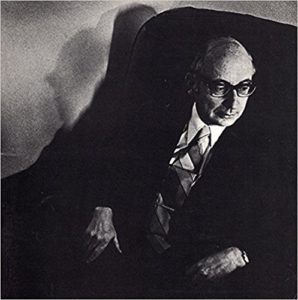
Joseph Wolpe [image source]
In psychology, reciprocal inhibition is a behaviour therapy technique presented by psychologist Joseph Wolpe in the 1950s, and is based on the principle that different physiological responses are incompatible with each other (reciprocal innervation). The technique is used especially for treating phobias, where a state incompatible with anxiety (such as anger or relaxation) is evoked at the same time as an anxiety-provoking stimulus is presented. A new response to the stimulus is thereby learned.
Sources:
Joseph Wolpe (1958), Psychotherapy by Reciprocal Inhibition. California: Stanford University Press.